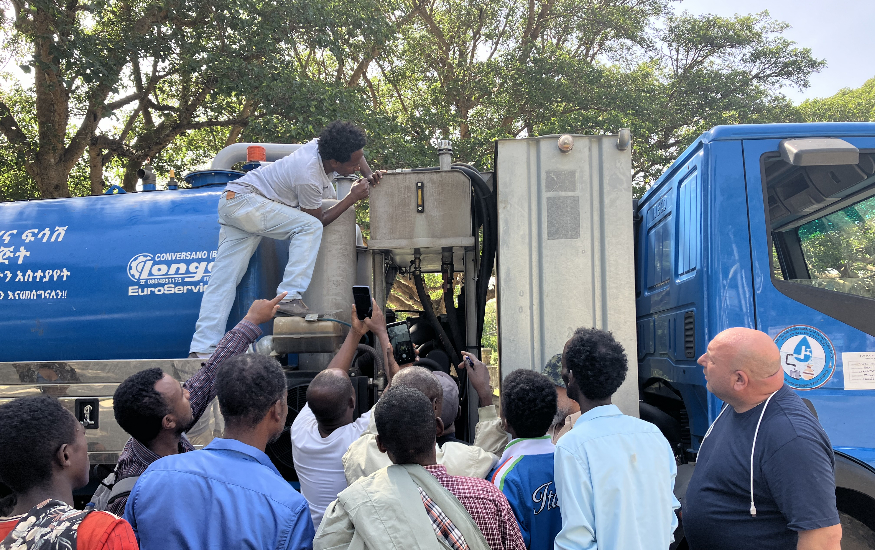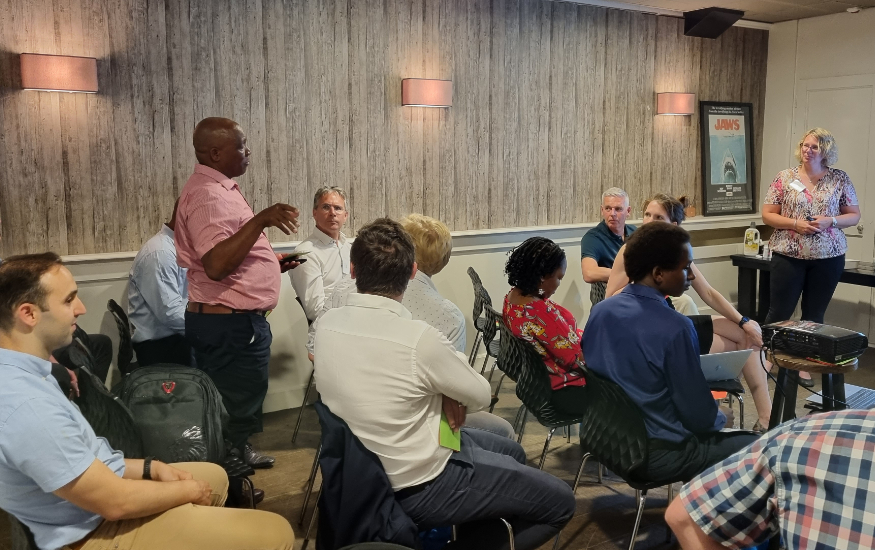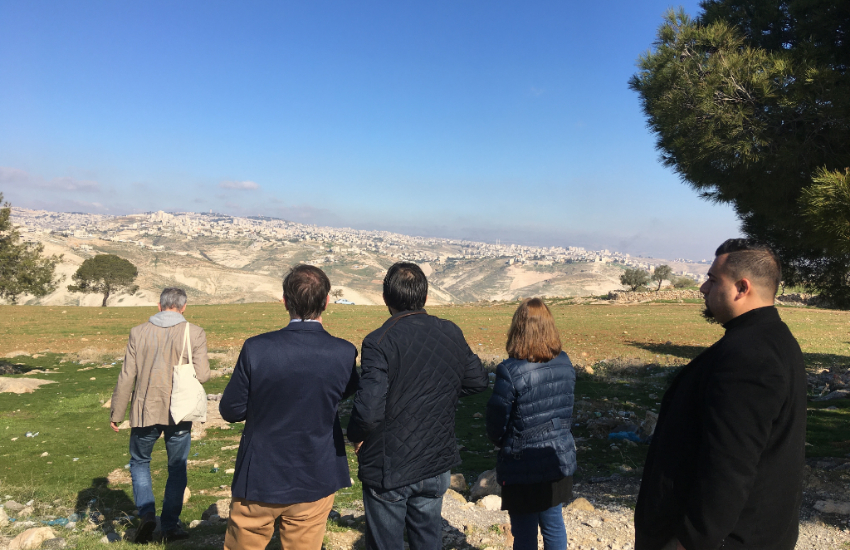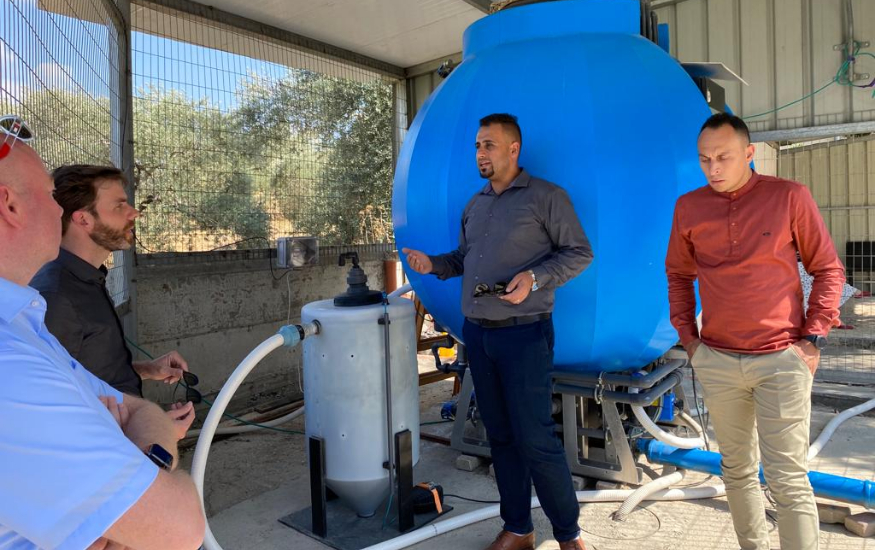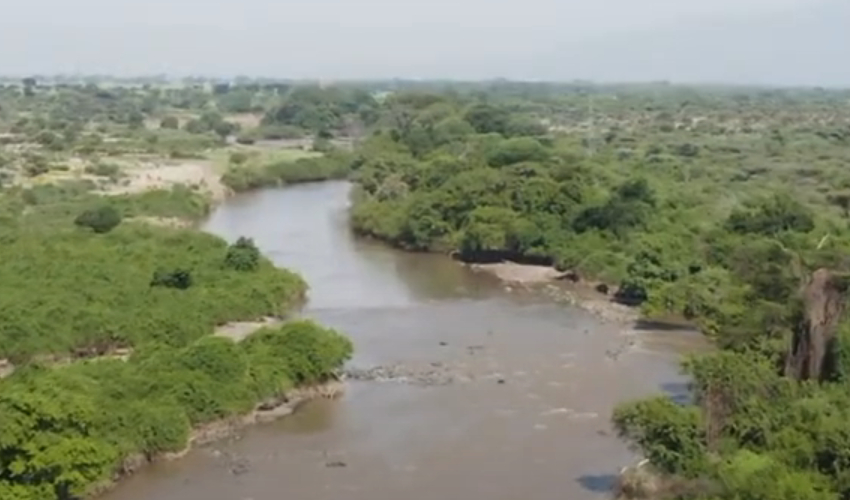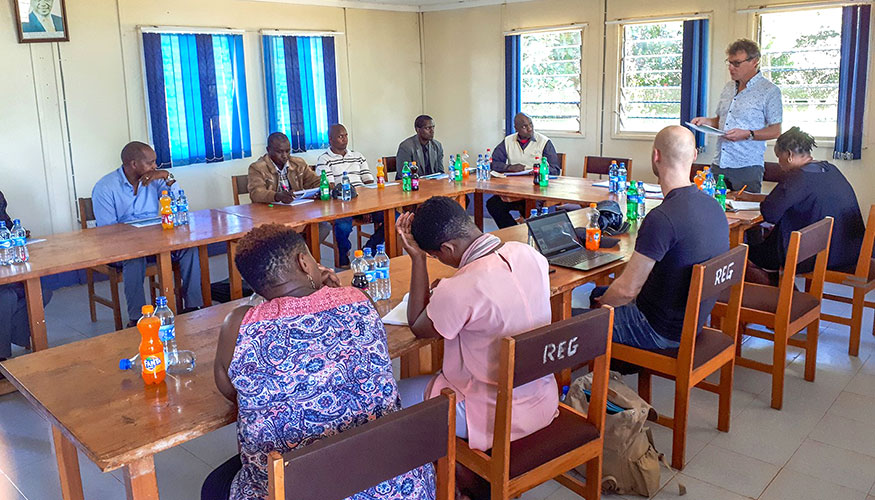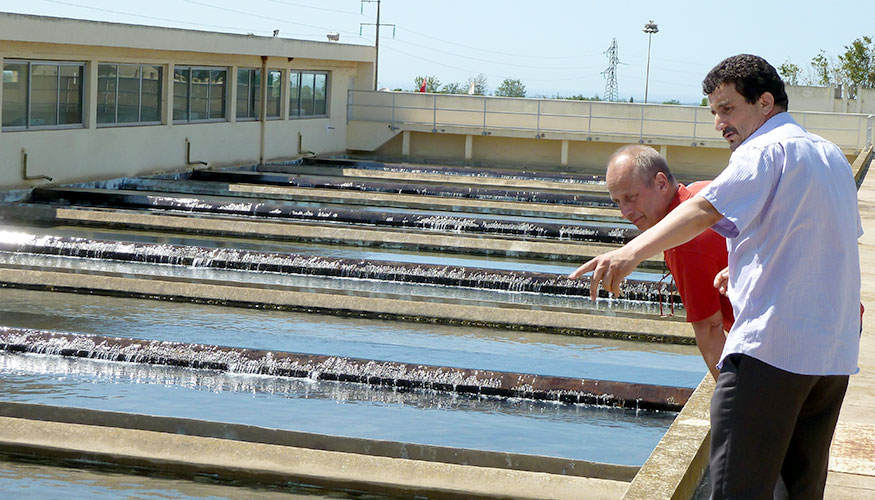At the beginning of October, the city of Adama, Ethiopia, celebrated a major milestone: the inauguration of a newly constructed wetland. This initiative has improved the living conditions of 700 residents, offering enhanced safety, hygiene, and a cleaner environment.
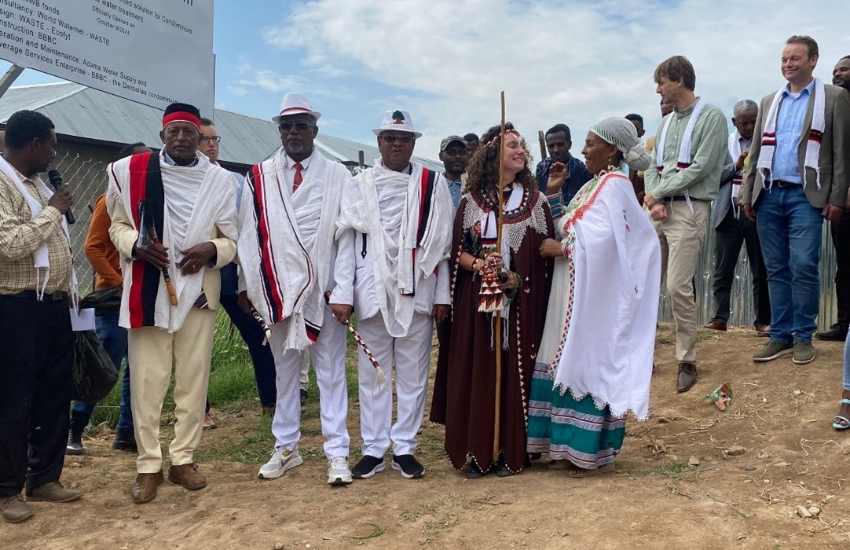
The wetland – a natural alternative for wastewater treatment – contributes to public health and strengthens the local ecology in a sustainable way. This project was supported through additional funding from the NWB Fund for the Blue Deal Wastewater Ethiopia initiative.
Wastewater treatment vs. wetlands
In some countries, wastewater treatment facilities are scarce. An alternative is a wetland, which mimics natural processes to purify water. This approach, also known as constructed wetlands or helophyte filters, utilises plants, soil, and bacteria to remove pollutants from wastewater. The treated water can be pumped using a hand pump and reused for flushing toilets or watering vegetable gardens. Through the Blue Deal, World Waternet (of which the Dutch water authority Amstel, Gooi en Vecht is part of) is supporting Adama’s local water utility in monitoring the water quality, ensuring safe and responsible reuse by the community.
A blessed opening
The opening ceremony was blessed by the Abagadda, respected elders of the community, whose support symbolises strong local involvement. The State Minister of Water Supply and Sanitation, H.E. Dr Asfaw Dingamo, emphasised the importance of sanitation for effective water management: “Sanitation is a crucial component of the water cycle that must not be overlooked.” During the event, project leader Tanah Meijers was honoured with a new Oromo name, Bagatú, meaning ‘resourceful’.
A community-based solution
This project goes beyond being a nature-based solution; it is also a community-based solution. The residents of Denballaa were involved in the development of the wetland from the very beginning and will now manage it themselves. They will receive support from the Blue Deal partner, Adama Water Utility, ensuring long-term sustainability. By involving the community, the project fosters a sense of pride and responsibility among the residents.
Linking water management
Jelmer van Veen, First Secretary for Water Affairs at the Dutch Embassy in Ethiopia, underlined the importance of a holistic approach to water management: “We often focus on water supply, but sometimes forget what happens to wastewater. Untreated wastewater has significant consequences for health and the environment. Everything is interconnected.”
More wetlands in the future
World Waternet’s CEO Frodo van Oostveen thanked everyone for their perseverance and concluded the ceremony with an energetic message: “Next year, we hope to see the Dembela wetland flourishing. We aim to establish more wetlands in other cities. Today should be celebrated as Ethiopia’s Wetland Day, and I look forward to seeing you next year to share experiences from the Dembela wetland and celebrate the opening of a new one.”
Broad impact in Ethiopia
This project in Adama aligns with similar initiatives, such as those in Shashemene, where 2 wetlands were previously constructed by partners WASTE and BBBC. Blue Deal Wastewater, along with the Shashemene Water Utility, monitors water quality with wastewater specialists from (World) Waternet, the Municipality of Groningen, and Urk. Together, they ensure that wetlands become an integral part of the water utilities’ asset management.

